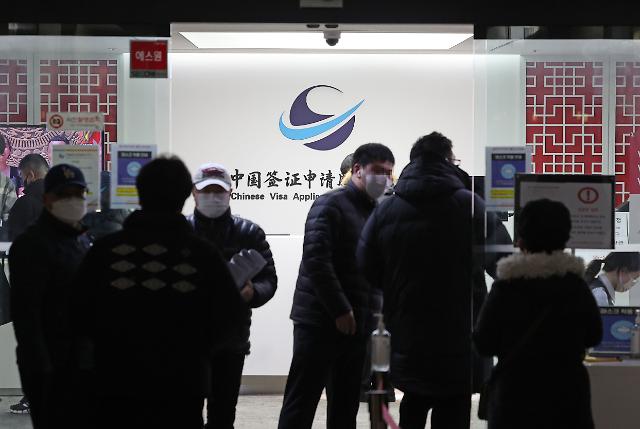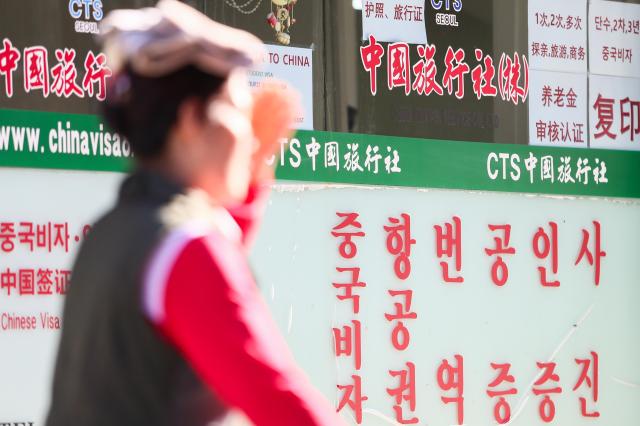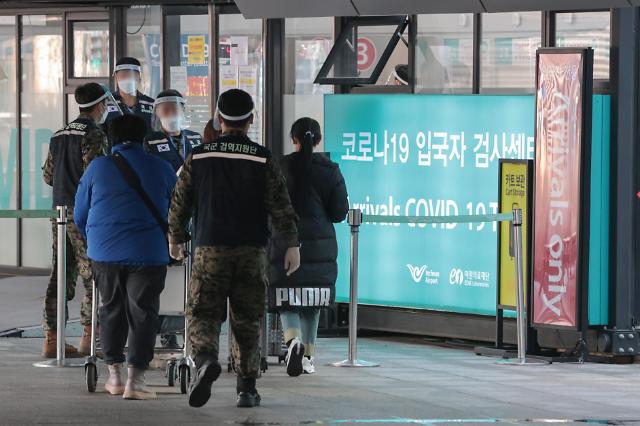South Koreans gather at a Chinese visa application center in Seoul, February 15, to apply for visas to travel to China. The Chinese Embassy in Seoul said that China has decided to resume issuing short-term visas for South Korean travelers on February 18. [Yonhap]
The decision was made four days after South Korea restarted the issuance of short-term visas for travelers from China. The Seoul government lifted the visa restrictions as China's new COVID-19 wave began to recede and a mere 1.1 percent of travelers from the neighboring country tested positive for the coronavirus.
The Seoul's move came after South Korea suspended the short-term visa issuance for arrivals from China starting January 2 due to an upsurge in virus infections in the neighboring country. Korea has also required travelers from China to be subject to a mandatory COVID-19 test before and after their arrival here.
In retaliation against Seoul's restrictions, China began to do the same on January 10 by halting short-term visas for South Koreans and banning them to stay in China temporarily for transiting to other countries.
In positive response to Seoul's decision on the resumption of visa issuance, China immediately said last week that it would actively consider lifting its short-term visa restrictions on South Koreans.
Then, the Chinese Embassy here said in a notice posted on social media that the plan to lift visa restrictions will be implemented on February 18. With the lifting, South Korean travelers transiting to other countries will also be allowed to stay in China for up to 144 hours without visas.
The measures are expected to end a diplomatic row over the entry ban on short-term travelers from each country. South Korea has already promised to lift remaining COVID-19 restrictions such as a mandatory virus test on a gradual basis.
However, Seoul and Beijing have yet to decide on how to implement a previous agreement to increase the number of flights between the two countries which were reduced in the aftermath of the coronavirus. South Korea has also remained excluded from China's list of 20 countries to which Chinese nationals are allowed to go on a group tour.
Diplomatic sources said that it will take some time for both countries to allow their own nationals to travel to the other country more freely just as seen before the outbreak of the pandemic.
However, they expected that Seoul and Beijing will soon start negotiations to implement the agreement to increase the number of flights between the two countries to 100 per week from the current 60 per week.
Copyright ⓒ Aju Press All rights reserved.





